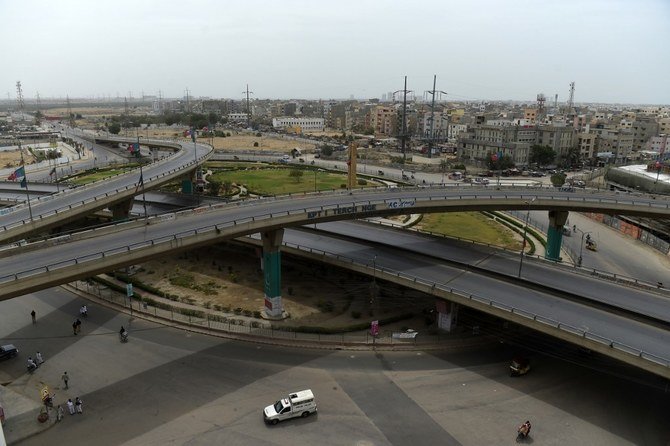
- ARAB NEWS
- 13 Jul 2025

It’s microscopic, fast and mysterious; an invisible, sneaky enemy that does not differentiate between old and young, rich and poor, strong and weak, whoever and wherever they may be. It does not believe in borders, it simply relies on the human touch.
The novel coronavirus disease (COVID-19) pandemic is holding the world in its grip, causing fear, panic and distress. In the space of just a few months, more than 400,000 cases and 19,000 deaths have been reported in 195 countries and territories, and it is still spreading. It has brought some of the most powerful countries in the world to their knees, and placed the planet in a state of lockdown.
People fear what they cannot see or do not know, and their reactions vary. Some are in denial or disbelief, leading them to question the whole situation or downplay it, despite evidence of illnesses and deaths; or they might come up with or circulate conspiracy theories or any kind of explanation, even though history tells us of many previous pandemics. Worse still are those who ignore the precautionary and preventive measures advised by the health authorities. Then there are those who create rumors and fake news that undermine the work of the authorities and cause chaos and confusion. Selfishly, they all put their lives and the lives of the people around them at risk, thus contributing to the spreading of the virus.
Others might react by panicking and exaggerating the current or expected situation, causing them to overstock food, grocery items and medicine, and become hostile and selfish in putting themselves first. Others have fallen into distress because they don’t have clear answers about how long this will last and what will be the short and long-term effects on them, their families and their country. Already stock markets have crumbled, industries such as airlines and tourism have collapsed, and all forms of “businesses as usual” have ceased to exist. The expected levels of job and revenue losses are astounding.
Life as we know it has come to a standstill. A stop sign has been raised at all the intersections.
On the other hand, while doors are being closed, hearts are opening up through volunteering, donating and sharing. While we cannot gather outside our homes, we are coming closer together inside, practicing social distancing as an acceptable form of socializing without being thought of as rude or antisocial. While we cannot talk face-to-face, we are chatting more often online, exchanging messages of prayer, solidarity and love, as well as many jokes to cheer each other up.
Hats off to the governments that acted responsibly, swiftly and with transparency at the first signs of an outbreak
Maha Akeel
Some opportunities have blossomed, particularly everything related to the internet, including distance learning, working from home, home deliveries, entertainment and the cutting down of government bureaucracy.
Maybe it is a wakeup call. Maybe we needed to take time off from our busy schedules and obsession with materialistic things to slow down, find inner peace and appreciate what we have: Our health, our families, and our well-being. Skies and waters are clearing up in some of the most polluted places. The Earth is breathing a little easier. The sounds of nature are purer. Cleanliness has become a valued habit for us and the environment.
It is also an opportunity to appreciate the real heroes — those who put their lives at risk to provide us with health care, security and all the basic necessities of life. Real priorities have come into much sharper focus. It is not weapons and luxuries, but good health care, public service and infrastructure. As we wait for scientists to discover a vaccine and a cure, we realize that we need to invest more in education, research and innovation.
Hats off to the governments that acted responsibly, swiftly and with transparency at the first signs of an outbreak, putting the lives and basic human rights of their people ahead of any other considerations. Saudi Arabia proved to be a role model in taking courageous and firm steps in this regard, and the people have, in general, showed a high level of awareness and discipline. A word of assurance from King Salman comforted people and encouraged them to continue following the regulations.
This is a global crisis. Ironically, as much as this crisis has forced us into lockdown, it has proved how interconnected and interdependent we are. We need to work together, help each other and support each other to survive and get through the aftermath. The world is changing because of this virus — demographically, socially, economically, and politically. It will be a different place.